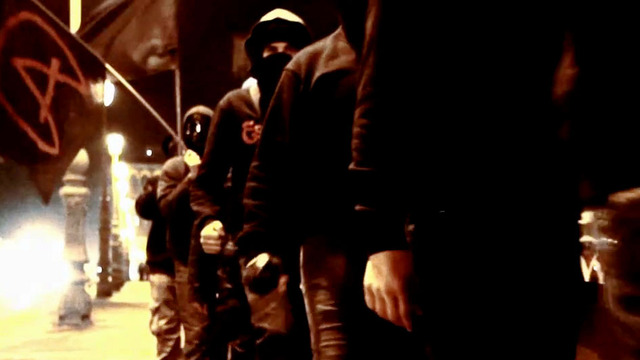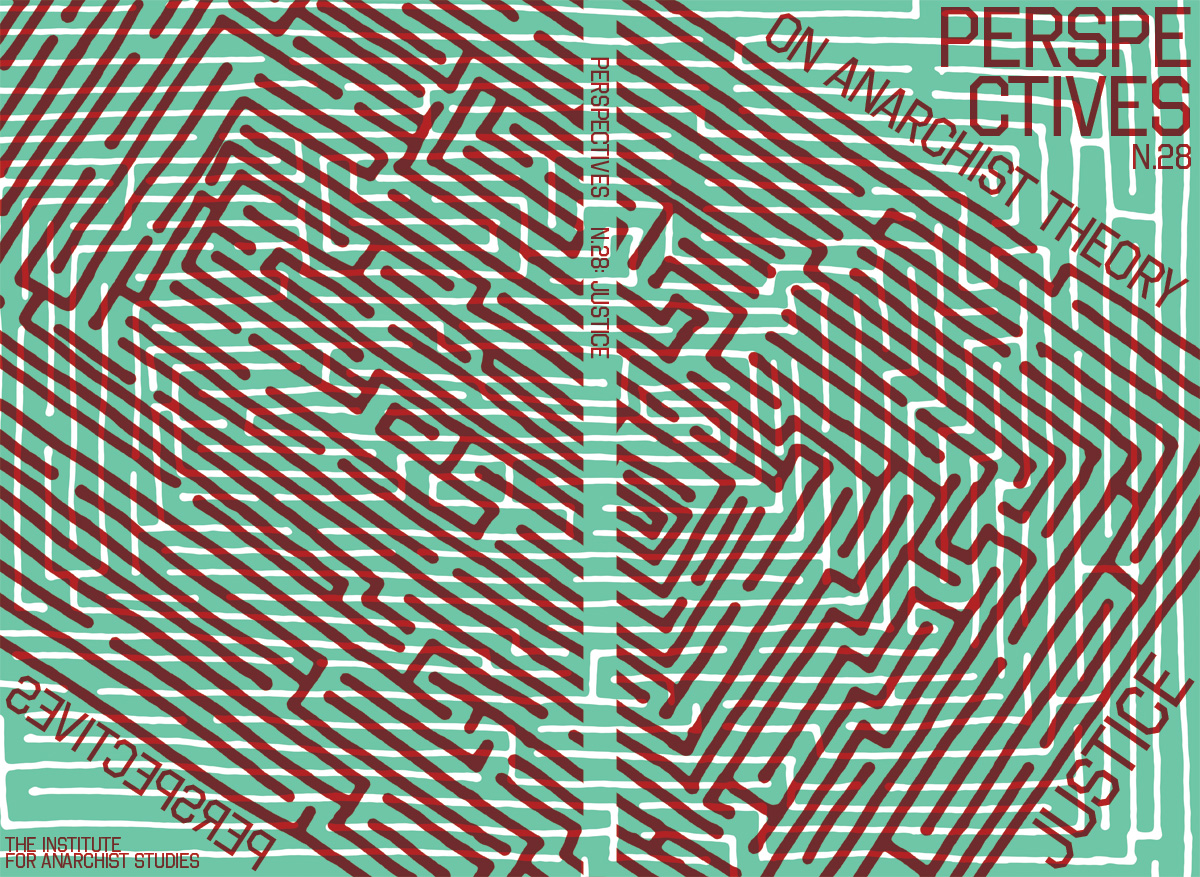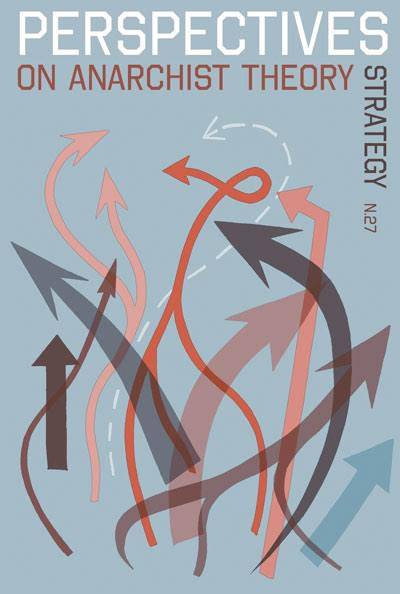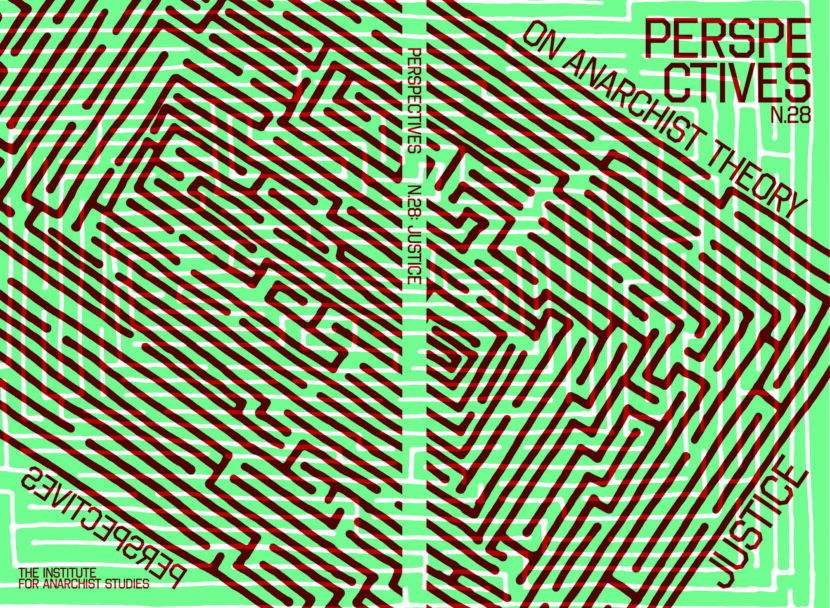Perspectives
Hunger Strikes, Dignity and Freedom Amidst the “War on Terror,” by Brooke Reynolds
This piece originally appears in issue N. 28 of Perspectives on Anarchist Theory, available from AK Press.
“I will carry my soul in my hand
/ And throw it in the valleys of death /
It is either a life that makes a friend happy
/ Or a death that makes an enemy angry.” –Abdulrahim Mahmoud, Palestine
“When the will is free and the cause is just, and you embody both, the human is capable of making miracles happen, and no oppressive, tyrannical, murderous regime can harm it” -Ameer Makhoul, Palestine
“Sometimes I sit in the chair and vomit. Nobody says anything. Even if they turned their backs I would understand. I’m looking for humans. All I ask for is basic human rights.” –Emad Hassan, Guantánamo Bay

(Photo by Max Collins)
Insurgent Islands: A Continuing Conversation on Anarchism with Principles, by Kevin Van Meter
“Freely Disassociating” appeared in June 2015. Although it was written a year prior, the half dozen Left and radical publications to which it was initially submitted would not print it. Since its publication by Perspectives on Anarchist Theory inquiries and positive responses (such as Scott Campbell’s, on which I have commented upon elsewhere ) have found their way to me either directly or through intermediaries. Of course there was a series of irrational and nonsensical comments online that only served to confirm my claim that there isn’t an “audience that can access arguments and positions outside those with which it already agrees.” And for that matter, the positive responses confirm this as well. What is interesting about those who are generally supportive of my arguments is that they often agree with the analysis of the problems that currently exist in radical movements, but are neither able to completely disassociate from the “tyrannical bitterness” of contemporary radical politics nor to engage with the proposal that anarchism with principles will arise from a political project rather than being proposed a priori.
What I had not fully articulated in the original article is that until there is a counter-pole to current radical movements there cannot be a shift toward creating anarchism with principles. It would violate common sense to suggest that you can decrease X (involvement in radical movements as they are currently composed) and as a result Y (a counter-pole, anarchism with principles) would emerge. Our increasingly ideological anarchism is defined by theoretical practices: the setting of ones own limitations rather than common horizons; obsession with imaginary relations instead of relations between anarchism’s collective imagination and the ability to collectivize them in the world; and there is not a Yes to many, many No’s reversing the call for “One No, Many Yeses.” It is these practices that anarchism with principles seeks to counter. Moreover, and possibly more important, two interrelated problems suggest the need for another passage out of the current malaise. The approach of creating forms of organization, from clandestine cells to non-profits, a priori to the desires and activity that will propel them forward, postulate purpose, set priorities, and provide the content and context in which they will operate is fatal. This is exacerbated by the inability to make a clean break from current radical movements and instead align oneself with the rich, substantive history of revolutionary ideas and practices. Until these three separate issues are properly addressed the preconditions required for anarchism with principles to develop cannot be established. I will take each issue in turn.
Confronting Vigilante Responses in Accountability Work: The Need for Accountability in Everything We Do
by Romina Akemi
This piece originally appeared in Perspectives on Anarchist Theory‘s Justice issue (n.28) in 2015. On June 7th, 2014 multiple organizations in the Los Angeles-area hosted an event called “Transformative Justice: Our Movements and Our Struggle” at the Asian Americans Advancing Justice space in downtown Los … Read more
Towards a Fatter Insurrection: Introduction to a Revolutionary Body Liberation Movement, by Shane Burley
After Jessica parked, she was too busy juggling her phone and keys to notice the crowd of teenage boys moving toward her vehicle. As she got out she immediately recognized what was happening. It wasn’t the first time. She began walking to the café as … Read more
Towards an Anarchism with Principles: A Response to “Freely Disassociating,” by Scott Campbell

I read with interest Kevin Van Meter’s recent essay, Freely Disassociating: Three Stories on Contemporary Radical Movements published by Perspectives on Anarchist Theory on the Institute for Anarchist Studies website. In it, he discusses the current climate within the anarchist movement, painting a grim picture where increasingly meaningless labels and judgments get tossed about like political hand grenades, shutting down discussion, utilizing guilt-by-association, fomenting an atmosphere of anti-intellectualism and devolving into moralizing-outrage-as-activism. In his third of the three anecdotes he shares, he also elaborates how association with the anarchist movement can lead to unreasonable expectations and standards being placed on an individual. As a result, the radical movement has largely become a void consumed by the loudest voices or the latest controversy, leading people to disassociate from it.
Facing this scenario, Van Meter argues for developing an “anarchism with principles” based in a milieu of “working class, and revolutionary, intellectual culture.” The principles would emerge through dialog, debate, organizing and application in struggle.
On Justice, by Maia Ramnath, Paul Messersmith-Glavin, Sara Rahnoma-Galindo, and Lara Messersmith-Glavin

The introduction to the new issue of Perspectives on Anarchist Theory, available from AK Press.
We know what injustice is.
We know instinctively from the time we’re little. Even if she can’t describe it, a child’s protestations of “That’s not fair!” “He cheated!” “She got more than me!” “That’s not FAIR!” signal what she senses on principle.
But what is justice?
Is it a code of ethics, how you’re supposed to treat people on the individual, interpersonal level? Or is it that which promotes conditions for what is fair and equitable on the structural, systemic level?
Freely Disassociating: Three Stories On Contemporary Radical Movements by Kevin Van Meter
I don’t know how to begin because I am no longer sure for whom I am writing. I am concerned that there is no longer an audience to write for.
As a necessary aside: with the disappearance of Left print media and the rise of blogs, there are few places left to publish. Journals with limited circulation or preselected audiences dominate the landscape and the contemporary radical media cannot reach fellow adherents, much less the larger public. Often, it seems that all that remains is a smattering of decrepit publications that speak for the ‘dead institutions’ of the American Left or function as the Daily Worker of a non-existent party — or, and possibly worse, blogs that only run the poorly written position papers of minuscule sects too self-obsessed to see their vanguardism coupled with, and only overshadowed by, their irrelevancy.
Organizing Against Climate Catastrophe, by Paul Messersmith-Glavin

The forces responsible for changing the climate and endangering the future of humanity have names. Names such as: Chevron and Exxon Mobil, Saudi Aramco and Petroleos de Venezuela. They are the predominant groups responsible for playing havoc with our collective future. In fact, two-thirds of historic carbon dioxide and methane emissions can be attributed to exactly ninety entities. They are based in forty-three countries and extract resources from every oil, natural gas, and coal rich region in the world. They process the fuels into products that are sold to consumers in every nation on the planet. Of the top 85 emitters, 54 are in industrialized countries and 31 are in developing nations.[2] Knowing who and where they are demonstrates that an end to the problem is within our reach. In order to stop global climate change all we need to do is put pressure on these isolated entities, right?
Wrong. While these are the primary economic forces responsible for climate change, it would be a mistake to think if we stop these particular companies from conducting business as usual, we can solve the problem. They are only the most public faces of a system that goes much deeper.
The Greek December Revolt and its Current Relevance, by Michail Theodosiadis

Preface
This essay examines one of the most important historical events of the past decade, the 2008 Greek rebellion and its possible relationship with the rise of the Coalition of Radical Left (SYRIZA) to power. My aim is to eludicate this revolutionary moment without exhausting my focus on urban violence, which I consider a second priority. I will elaborate on the anarchist elements of the revolt and the influences in the general attitude of the public. Certainly (and to avoid crucial misunderstandings) the December revolt would be unimaginable without having incarnated some of the most fundamental anarchist elements that are widely embraced by a large part of the Greek youth (and most of all we cannot ignore Exarcheia – district of central Athens – where the revolt begun, an area of particular symbolism, which for years was the main epicenter of the Greek anti-capitalist movements). However, it is certainly wrong to classify it as a purely anarchist event as it is believed by many activists across the world. This very common false assumption has led to a peculiar but also unacceptable mystification for the Greek anarchist space. Contrary to that, the vast majority of young Greek anarchists seem to be reluctant to abort sectarianism and idolatrous invocation to ideological puritanism, which isolates them from the public sphere. Thus, instead of allowing their presence to become a significant protagonist in the country’s antagonistic movement, to propose radical alternatives beyond liberalism and parliamentarism, their absence from the procedures that shape a new political consensus results for all populist initiatives to become entirely consumed by the rhetoric of party mechanisms. This, precisely, explains the rise of the SYRIZA, which although has not much to do with horizontalism and direct democracy, should not be discarded since its victory in the recent elections of January, 2015 is of utmost important (I will discuss this issue in relation to the December revolt).




